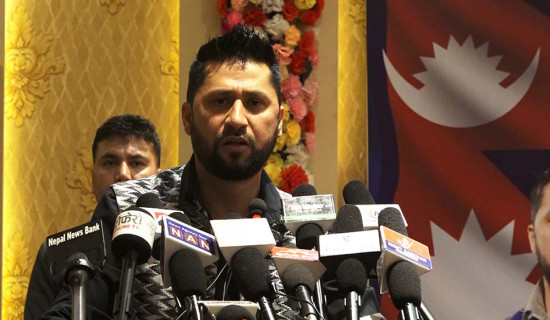- Saturday, 27 April 2024
New Public Passion
A Must For Nepal's Civil Service
Binaya Paudel
Civil Service is often described throughout the world as a permanent government of a state. This is undeniable in the sense that elected representatives who remain as the policy formulator remains in the policy formulation authority for a prescribed period except withstanding anything written in the set of statutes and regulations in the country. Civil Service may be understood in different ways based on the adopted civil policy or the statute of a country.
The Constitution of Nepal (2072) formulated through a country's long transitional political system (two-term elected constituent assembly) and Civil Service Act, B.S.2049 describes civil service as the government servants other than the militant wing of the state. A militant wing may entail – Nepal Army, Nepal Police, Armed Police Force, and Nepal Investigative Authority.
The formal history of the Nepali Civil Service is not very long. It dates back to the formulation of the Civil Service Act, B.S. 2013 under the leadership of the then prime minister Tanka Prasad Acharya. Our civil service doesn't have a fixed policy that is being adopted.
However, it has been advocated that civil service has adopted different innovative policies like New Public Management (which advocates that the successful practices of the private sector are to be adopted in the public sector to make the public service delivery as effective as in the private sector), New Public Service (which advocates that citizen should not be treated as a customer rather they they should be respected as a citizen.
Citizens have the rights to be delivered with public service as per their expectations as public are the means and ends of public service delivery) and other several policies such as Public Service Government, Aligning with people policy, etc.
But the major question that strikes and should strike in everybody's (Public service delivering and the Public Service Delivered) thought process is that – Is the end but well thought out the predetermined goal of making a public service enriched with the principle of 3Es (Effectiveness, Efficiency, and Economy) achieved as expected? What is the pace of achieving the pre-determined goal? 3E's
are also defined on the convenience of the service provider, but it's necessary to make prioritisation of 3E's. Effectiveness, Efficiency, and
Economy should be the order as per the norm of public service delivery as public service is
completely non-profit oriented but the only service-oriented task.
It is very tragic that the trust of the public is downsizing towards civil service day by day. They are often accused of prioritizing earning their bread even from the unholy nexus between different self-interest groups and so-called elite strata of society.
This has also given the space for citizens that the Nepali Civil Service needs a paradigm shift through the adoption of novel and suitable policy that suits the context of Nepal as Nepal has already gone the federalist model of administration from B.S 2074 which is still in the transitional period of implementation as the federal administration act has not been passed from the federal parliament due to factionalism among the political parties regarding some of the points on it.
Instrisic Motivation
New Public Passion (with reference to the study of UNDP) is the idea that presents its idea that intrinsic motivation matters. It incorporates intrinsic and extrinsic motivation as well as organisational dynamism.
Organisational dynamism in the civil service has been a more ICT-based service delivery agent, less rigid and less complex organisational norms and values, inclusive and diversity-friendly workforce, and most importantly the organisation has the challenges of fulfilling growing expectations of citizens.
Intrinsic motivation involves the stimulus that gives a hunger of working hard( at least trying harder) for what they feel they are doing the right, and makes them more engaged towards the work they find interesting and more passionate in pursuit of their values – should not be controversial.
The traditional way of providing extrinsic motivation through salary increments, bonus systems, reward and punishment systems, etc is also essential but by itself cannot drive performance in a fast-changing, complex world.
The NPP idea draws on and seeks to build lessons from Public Service Motivation (PSM) into the heart of public management models. James Perry defines PSM as "an individual's predisposition to respond to motives grounded primarily or uniquely in public institutions.". Perry's measurement methodology has laid the foundation for empirical analysis of the importance of PSM.
Nepali Context
Though the Nepali Civil Service has long been criticised by service takers for the delay, ineffectiveness, and inefficient service delivery. The case of reference can range from NID distribution to poor management in passport distribution, citing problems in different dimensions to the criticism of the inspection mechanism of GON on sensitive fields such as air transport. It can be said that any citizen might not have gotten their work done as promised through the citizen charter (as provisioned by different Acts such as the Good Governance Act, B.S. 2064, RTI, B.S. 2064) except for some of the governmental institutions and civil servants.
This esteem comes from the absence of extrinsic motivation, and intrinsic motivation as well as the untimely and impractical access to changing dynamism of an organisation. Leaders all over the world accept the fact that managing human beings is the most challenging among all the resources and capital needed for an organisation. Very high emphasis is being made on their management of them and getting the predetermined goal achieved through their efforts.
We do have a provision that there is a dedicated wing i.e. Ministry of Federal Affairs and General Administration (MOFAGA) in the Government of Nepal for the management of civil servants ranging from Pre-R and Post-R (Pre- recruitment to Post-Recruitment). It's bitter but the truth is that we don't even have a good performance appraisal from the such situation it's not thoughtful to even talk about Punishment and Reward System.
The appraisal system is only a formality and a process. All the subordinates are provided with the same top most score except for very few exceptions and the appraisal system is too much traditional as the world has already adopted appraisal principles such as 7200 appraisals, Assessment Centre Method, Behaviorally Anchored Rating Scale (BARS) Method, Human Resource Accounting Method, Psychological Appraisal Method, Management by Objectives and many other.
It's also criticised that transfers, promotions, educational scholarships, training opportunities etc- are in some circumstances attached to the proximity of a particular civil servant towards political ideology even though it's imagined that civil service is a politically neutral and committed organisation by the mother act of civil servants (Civil Service Act, 2049 and Regulations,2050). This very unthoughtful and impractical situation of extrinsic motivation and rampant impunity of concerned authority is imagined by this novel idea of New Public Passion (NPP).
On the other hand, it may not be wrong if it is said that Nepali Civil Servants have minimal intrinsic motivation. They are seen and often accused of attending office from 10-5 only to earn their living not because they enjoy what they are doing.
The spirit of providing public service and implementing the commitment of government as expected by the government and imagined by different statutes, acts and policies has not been seen to come into practice.
This may be due to political interference in every sector of public service or in other words it can be said that civil servants are not given the freedom to work on their own relying on Standard Operating Procedure (SOP).
This problem has increased more after the adoption of the federal administration and a huge number of representatives elected in each of the administrative regions. The superiority complex and the conflict of interest among the representatives themselves have hampered the intrinsic motivation of administrators whereas the Constitution of Nepal has imagined civil service as the executive and permanent wing of each administrative division.
By reducing the problems that may interfere with or obstruct the intrinsic motivation of civil servants, NPP has advocated promoting intrinsic motivation within civil servants and making them enjoy what they do through Standard Operating Procedures (SOP) to ensure they are doing the right thing in the right manner. Organisational dynamism is another important element that NPP advocates, Federal Administration of Nepal is in the infancy stage.
It is undeniable fact that it needs immense care and attention in its infancy period, as it is also a matter of change. Change-resisting culture that has been observed throughout the world is not indifferent to Nepal.
The different structure that remained in Nepal for a very long period and was familiar to the civil servant arises a question on the implementation of federal administration in an easy way, due to the change resisting the culture of employees, very lengthy and time taking federal civil service act formulation and the creation of inequality among the three level of administration, NPP makes a civil servant competent and conscious to the dynamism in an organisation and the wise and prudent adaptability according to dynamism.
When analysing the overall aspects of intrinsic motivation, extrinsic motivation, organisational dynamism, the past adopted policies, the present conditions, prediction of the future keeping the present situation in regard, the transitional period the Nepali Administration is going through is seen as the need for adoption of a novel policy that would be able to address all these situations. The policy covers all these aspects and is one that could fulfil the growing expectations of people in service delivery as they can access the condition of service delivery throughout the world through the globalisation of communication sector.
As citizens are the ends of public service delivery, the concerned authorities should be more competent and serious towards the issue of public and should be able to move along with the adoption of novel policies with detailed research upon the Strengths, Weaknesses, Opportunities, Threats of a particular policy which is commonly known as SWOT analysis, not very new but commonly practised approach in the world.
(The author is a BBA graduate)



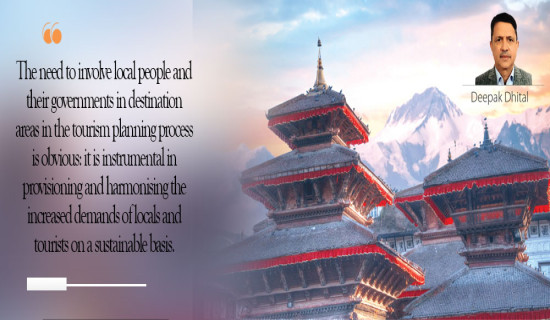



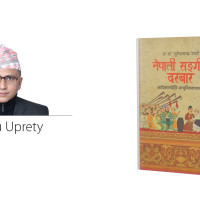


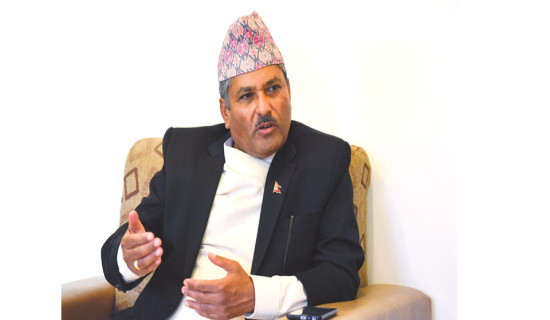
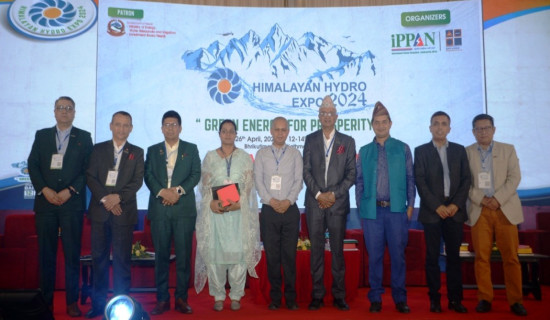

-original-thumb.jpg)

